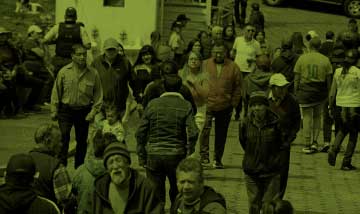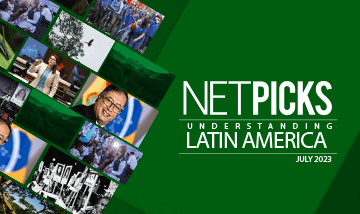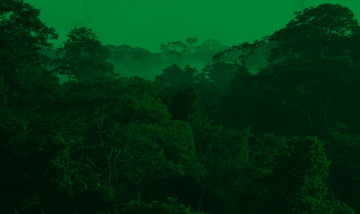Índice
- Understanding Latin America
- ECUADOR
- PERU DISSOLVES ITS CONGRESS, SETTING UP A FIGHT FOR THE POLITICAL FUTURE. Zaraí Toledo
- INSTITUTIONAL CRISIS DEEPENS IN PERU. Democraciaabierta, November 27th 2019.
- BRAZIL
- URUGUAY ELECTION 2019: LACALLE POU SHOULD PREVAIL BUT WILL HIS COALITION HOLD IN OFFICE?
- EVO MORALES
- MEXICO: REVISITING THE BATTLE OF CULIACÁN
- ARGENTINA
- DEMOCRACY IN CHILE: MASS PROTEST AND THE LEGACIES OF DICTATORSHIP
Understanding Latin America
Every month we trawl the web for in-depth analysis, research summaries and opinions we think particularly worth reading, and that you won’t find in the mainstream media.
This month we bring you five articles: two from Peru, where the political situation is unclear despite the dissolution of Congress and the calling of elections for January 2020; from Chile on the details of the Pinochet Constitution that have been a major motivation behind the protests; from Uruguay where the Frente Amplio’s fifteen year hold on power was broken by a right wing coalition; and finally from Mexico where President Lopez Obrador’s ability to change a failed anti cartel strategy is being called into doubt.
After this month’s offering, Netpicks will take a brief pause. Our English newsletter will resume normal service in February 2020. We hope you have found this year’s selection of news from Latin America useful, and wish you all the very best for the holidays.
ECUADOR
The political situation in Peru has recently been extremely turbulent. Elected President Pedro Pablo Kuzcynski was forced to resign in 2018 only two years into his mandate in the face of damaging accusations linking him to the Odebrecht corruption scandal. He was succeeded by his Vice President, Martin Vizcarra, at the time consigned to the political margins as Ambassador to Canada, and himself accused of corruption by Keiko Fujimori’s Fuerza Popular party. Known simply as Keiko, the daughter of ex-President Alberto Fujimori, still in jail for human rights violations during his time as President (1990 – 2000), has also been accused of involvement in the same Odebrecht scandal. Acting President Vizcarra, initially supported by Keiko as a better option than Kuzcynski, has confronted the fujimorista majority and dissolved Congress, promising to clean up the existing political stalemate by means of elections to be held on the 26th of January 2020. A large proportion of the population supports the move. However, as the following two articles demonstrate, the picture is still not clear given that: after a promising showing in 2016, the Left is in disarray; Vizcarra, whose popularity has dropped, has no clear plan for governing and may simply continue the status quo; while thanks to a dubious Constitutional Court ruling, Keiko Fujimori has recently been released from prison, where she had been held for thirteen months awaiting corruption charges.
PERU DISSOLVES ITS CONGRESS, SETTING UP A FIGHT FOR THE POLITICAL FUTURE. Zaraí Toledo
Orozco, November 5th, 2019. https://nacla.org/news/2019/11/04/peru-congress-vizcarra
INSTITUTIONAL CRISIS DEEPENS IN PERU. Democraciaabierta, November 27th 2019.
https://www.opendemocracy.net/en/democraciaabierta/crisis-institucional-se-profundiza-en-peru-en/
BRAZIL
URUGUAY ELECTION 2019: LACALLE POU SHOULD PREVAIL BUT WILL HIS COALITION HOLD IN OFFICE?
After a recount, and complaints that Uruguayans living overseas are not allowed to vote, the most closely run second round of presidential voting in Uruguay’s history was formally resolved after a four day delay in declaring the winner. As widely anticipated, the thirty nine percent polled by the governing left wing Frente Amplio in the first round was not enough to hold back the opposing right wing coalition. Formed around the second place Partido Nacional and its leader Luis Lacalle, son of former President Luis Alberto Lacalle (1990-1995), the new alliance got over the line first although with a margin of victory somewhat less than expected. The major challenge for the President elect, whose post electoral message has been one of unity, will be that of keeping the five party coalition, some of whom are on the far right and even call for death squads, in line and functionally operative. Exactly what place on the right wing spectrum the group will finally occupy seems uncertain: Lacalle seems sure to change the country’s foreign policy, in particular its stance on Venezuela, but at the same time claims he does not plan to reduce social welfare or raise taxes in the face of an increasing fiscal deficit. However, campaign promises have a history of being broken, and for the Left, which despite internal divisions still has a sizeable presence in the parliament, the priority will be to defend the legacy of the fifteen years of Frente Amplio progress.
Morgan Fairless, November 23rd, 2019.
https://blogs.lse.ac.uk/latamcaribbean/2019/11/23/uruguay-election-2019-lacalle-pou-should-prevail-but-will-his-coalition-hold-in-office/
EVO MORALES
MEXICO: REVISITING THE BATTLE OF CULIACÁN
The effectiveness of the ‘Kingpin Strategy’ of arresting the leaders of Mexican drug trafficking cartels, in place since the ‘security policy’ by then President Felipe Calderón (2007-2012), and fully supported by the U.S., is questioned in this article. The author comes to the conclusion that despite removing many of the ‘most wanted’ cartel leaders, the strategy has been shown not to reduce levels of violence. In fact, rather than a reduction in violence the result has been long term increase. After all, as the author points out: “Removing the central figures of authority in these markets does not decrease the incentive to engage in illicit activities, but does create opportunities for rival groups—or former allies—to move in on the turf of the fallen boss.” However, despite the evidence, President Manuel Lopez Obrador was criticized for being weak after releasing a son of Chapo Guzmán of the Sinaloa Cartel in order to prevent deaths in a confrontation between security forces and heavily armed cartel members in Culiacán, Sinaloa State. And while a change in policy would be good news for Mexican population, pressure from the United States – Donald Trump has recently stated his desire to designate cartel members as terrorists – together with a recent attack by cartel members on a town in Northern Mexico where twenty one people have died, raise doubts about Lopez Obrador’s ability to discontinue a failed hard line policy.
Philip Luke Johnson, November 22nd, 2019. https://nacla.org/news/2019/11/22/culiacan-chapo-mexico-drug-violence
ARGENTINA
DEMOCRACY IN CHILE: MASS PROTEST AND THE LEGACIES OF DICTATORSHIP
The protests that began in Chile in October have left at least 23 people dead, have been widely publicized, and are still continuing. In analyzing the motives behind the protests a lot of attention has been paid to the Constitution approved as part of the deal that led to the change from the Pinochet dictatorship to electoral democracy. The details that lie hidden by the Quid Pro Quo of that time are less well known, most people still believing in the idea of the Chilean ‘miracle’. In this article, the author reveals a country riven by profound inequality, and while allowing that some progress has been made, finds the Chilean population still subject to constitutionally skewed power relations that allow business and the military to exercise effective control over the country. As the author explains, Chile is one of the most unequal and most privatized countries on the planet, and “…spends the least money per-citizen on social benefits and public services of any member country of the OECD (capitalist democracies).”
Heidi Tinsman, November 6th, 2019. https://nacla.org/news/2019/11/19/la-democracia-chilena-las-protestas-y-las-herencias-de-la-dictadura





